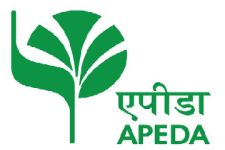APEDA refutes unfounded allegations in Organic Cotton Certification
Published: Jul 28, 2025

By TIOLCorplaws News Service
NEW DELHI, JULY 28, 2025: THE National Programme for Organic Production (NPOP) was launched in 2001 by the Department of Commerce, Ministry of Commerce & Industry, Govt of India for exports of Organic products and APEDA acts as the Secretariat for the implementation of the NPOP. The system of grower group certification was launched in 2005, as it was felt necessary to cater to small and marginal farmers.
Third party certification is a mandatory requirement for export of organic products. The NPOP standards for crop production have been recognized by the European Commission and Switzerland as equivalent to their country's standards and are also accepted by Great Britain. There is an MRA for organic products with Taiwan.
The system for Organic Certification under NPOP involves a third-party certification system of organic processes and organic produce, which is certified across the supply chain by a certification body (Govt. or private). The accredited Certification Bodies certify organic operators as per their scope of accreditation. At present, there are 37 active Certification Bodies operating in India, which include 14 State Certification Bodies.
Herein, it is clarified that APEDA or the Department of Commerce does not extend any subsidy to farmers taking up Organic cultivation under the NPOP. The figure of Rs. 50,000 per hectare and the further wrongly imputed calculations have no basis.
Organic certification under NPOP is not limited only to Madhya Pradesh but is spread across 31 States/UTs. As per latest records (as on 19.07.2025), there are 4712 active Organic grower groups covering around 19,29,243 farmers certified by the accredited certification bodies under NPOP. These grower groups are involved in production of a wide range of crops including cereals, pulses, oilseeds, tea, coffee, spices and not only cotton.
Thus, the number of Organic grower groups as mentioned in the briefing is incorrect along with the number of farmers, it is also misleading to infer that all the Organic grower groups of India are based in Madhya Pradesh and are producing only Cotton.
It is pertinent to mention that cotton is covered under NPOP only till production level. Thereafter, the post production including ginning, processing etc is done under private certification.
Under NPOP, ICS can be self-managed or managed through a service provider/mandator. As per the NPOP standards, it is mandatory for ICS to carry out internal inspections of all farmers twice annually. Apart from that, the Certification Body (CB) conducts annual audit of each ICS which includes Office audit and farm audits based on a sampling plan. The sampling plan is primarily based on the size of the holdings, number of farmers in the ICS and risk assessment. Certification bodies can carry additional inspections wherever deemed necessary.
In addition to the above, there is a third level of check on the CB by the NAB through APEDA, by undertaking unannounced audits of operators including grower groups (ICS) based on risk assessment/ complaints received, which is conducted by an evaluation committee constituted by the NAB and coordinated by APEDA.
Despite the above stated checks and balances established in the system, there have been reported incidences of malpractices and misuse of Grower Group Certification. These kinds of non-compliances are not unique to India or NPOP but apply to any regulatory system. In this regard the following actions have been taken by the authorities:
a. Stringent action has been taken against the cases of willful violation and severe non-conformities of Certification Bodies with the NPOP Standards.
b. The NPOP regulations have been revised bringing in more stricter norms in terms of legal entity of grower groups, close monitoring through ICS office in the vicinity of the grower group, and inspection of grower groups through mobile app is going to be started shortly.
c. New procedures have been formulated for additional checks for certification of organic cotton production. The procedure also limits the zone of the certification bodies certifying cotton to have a closer monitoring and oversight.
d. The process of unannounced inspections has increased many folds. Stringent action has been taken against the grower groups and the defaulting certification bodies.
APEDA is committed to ensure that the Organic certification system under the NPOP is credible, transparent and clear. Wherever credible evidence of non compliances/ wilful violation of organic standards have been brought to light, APEDA had undertaken extensive investigation and taken concrete measures. All such matters are subjected to structured investigation following principles of natural justice. Any Certification Body or operator found violating norms is penalized as per NPOP regulation.
It may be mentioned that in a press briefing by an opposition leader yesterday, unfounded, unsubstantiated and misleading aspersions are being cast against the Organic Certification programme, the National Programme of Organic Production(NPOP).
Generalised allegations against a robust regulatory system of the Country for a particular crop/ region/ group of operators only serve to undermine the credibility of legitimate regulatory institutions and the broader organic movement in India.




